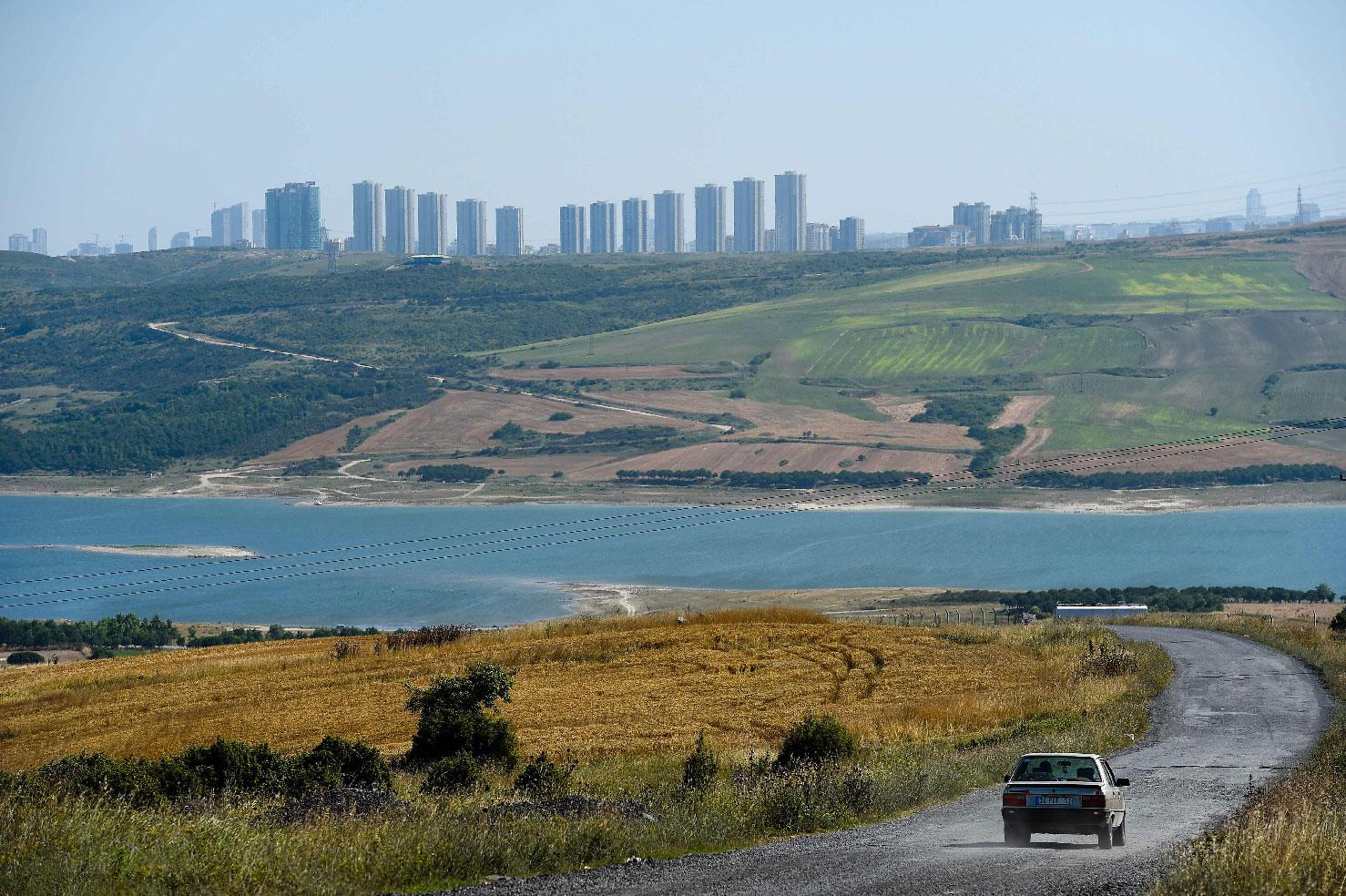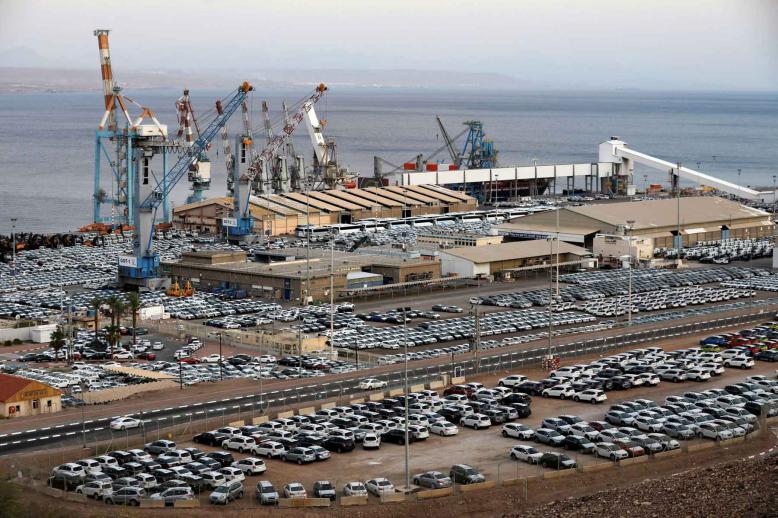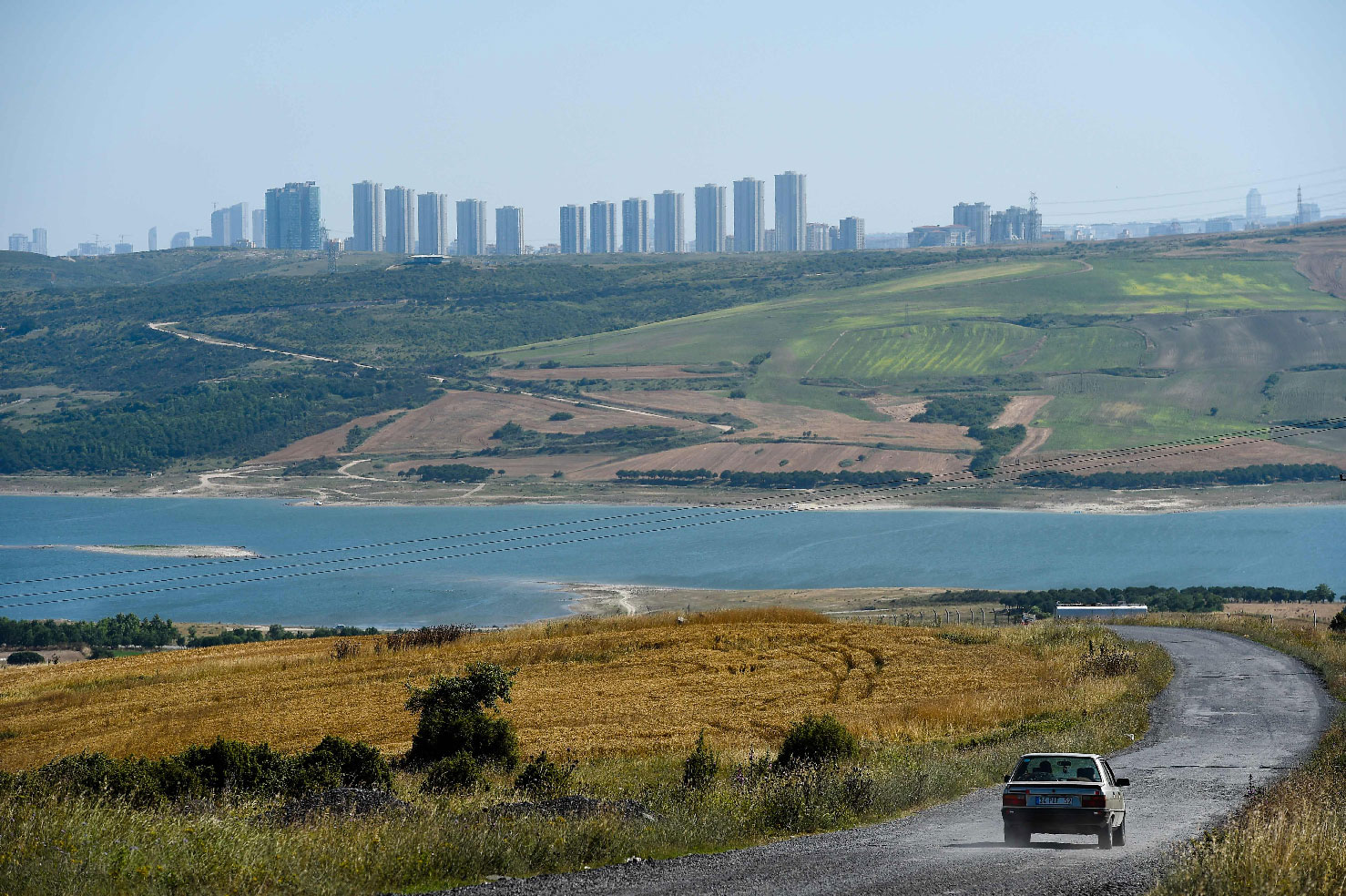Erdogan's Canal Istanbul dream an 'environmental massacre'
ISTANBUL - The waves of the Black Sea lap peacefully on the shore of the Turkish coastal village of Karaburun outside Istanbul. Not far away, water buffalo peacefully graze on green pastures.
But if President Recep Tayyip Erdogan wins the June 24 presidential elections and succeeds in implementing one of his most controversial plans, this arcadian scene will be transformed by a shipping canal comparable to Panama or Suez.
Canal Istanbul is the most ambitious of what Erdogan terms his "crazy projects" which have seen Turkey's infrastructure transformed with new airports, bridges, roads and tunnels during his 15 years in power.
Already in the area, ads abound for land sales and real estate offers that tout apartment developments with a view of the canal. A campaign video for Erdogan shows the area transformed by the new project, with bridges criss-crossing the water and luxury flats on its banks.
Turkish officials argue that the canal is a necessity to take the pressure off the Bosphorus, the strait that divides Europe and Asia and runs through Istanbul, which is clogged with vessel traffic and has seen several recent shipping accidents.
But opponents decry the venture as an environmental calamity which will destroy the remaining green spaces of Istanbul and permanently upset the ecosystem.
'Global brand'
The canal has become a major election issue, with Erdogan boasting of the idea as evidence of his vision to turn Turkey into one of the world's most innovative and fast-growing economies.
Turkish authorities say the 45-kilometre (28-mile) artificial waterway due to connect the Black Sea to the Sea of Marmara will have a daily capacity to host 160 vessels.
"It will be a global brand," Erdogan told one election rally. “It is a strategic project. One who does not understand Canal Istanbul project can neither understand Istanbul nor Turkey.”
But Erdogan's main challenger in the presidential race, Muharrem Ince of the opposition Republican People's Party (CHP), made clear that if elected he would scrap Canal Istanbul, describing it as a gigantic waste of money.
"No, I will not build it. I won't spend a billion dollars of this country to dig a canal," he said. "No offence, but no way!"
Erdogan touts the project as the latest in the line of grandiose schemes that have included a third bridge across the Bosphorus, two tunnels underneath the waterway and a huge new third airport for Istanbul due to open in October.
The canal is slated to begin in the Istanbul district of Kucukcekmece on the Sea of Marmara and then head toward the Sazlidere reservoir before emerging into the Black Sea around Karaburun. Construction has yet to begin.
Turkish officials also hope that the canal will allow Turkey to reap greater financial benefits from Istanbul's position as a shipping transit hub and also limit waiting times for ships, which are often anchored for days outside the Bosphorus.
'Environmental massacre'
But for opponents, the canal plan, which was first announced by Erdogan while prime minister in 2011, is a step too far.
"We don't see it as a simple canal project but rather as an attempt to attract more housing and construction," Nuray Colak of activist group Kuzey Ormanlari (Northern Forests) said, describing the project as an "environmental massacre".
In an apparent bid to counter such criticism, Erdogan has peppered his election campaign with promises to create vast new "national garden parks" in Istanbul as well as other cities.
Pelin Pinar Giritlioglu of the Istanbul City Planners Chamber said the canal project would limit crucial water resources and result in the loss of forests equivalent to almost 20,000 football pitches.
"Canal Istanbul is a project that seriously threatens (agricultural) production and Turkey's future," she said.
In Karaburun, however, where election posters of Erdogan hang with the slogan "a great Turkey wants a strong leader", for some residents the realisation of the canal cannot come soon enough.
"I own land here which in the past was not worth a thing but now will be two or three times more profitable. We will all win," 76-year-old local property owner Osman Kaptan said.
"Some areas will be demolished but new ones can be rebuilt," he added.
But in the village of Baklali to the south, where the canal will also pass, 64-year-old shepherd Halit Ozyigit said he feared the canal would end the job he has had since the age of 10.
"There will be no animals or pastures left if the canal passes through there," he said, as his water buffalos grazed. "All will be dead, animal husbandry will be dead."






